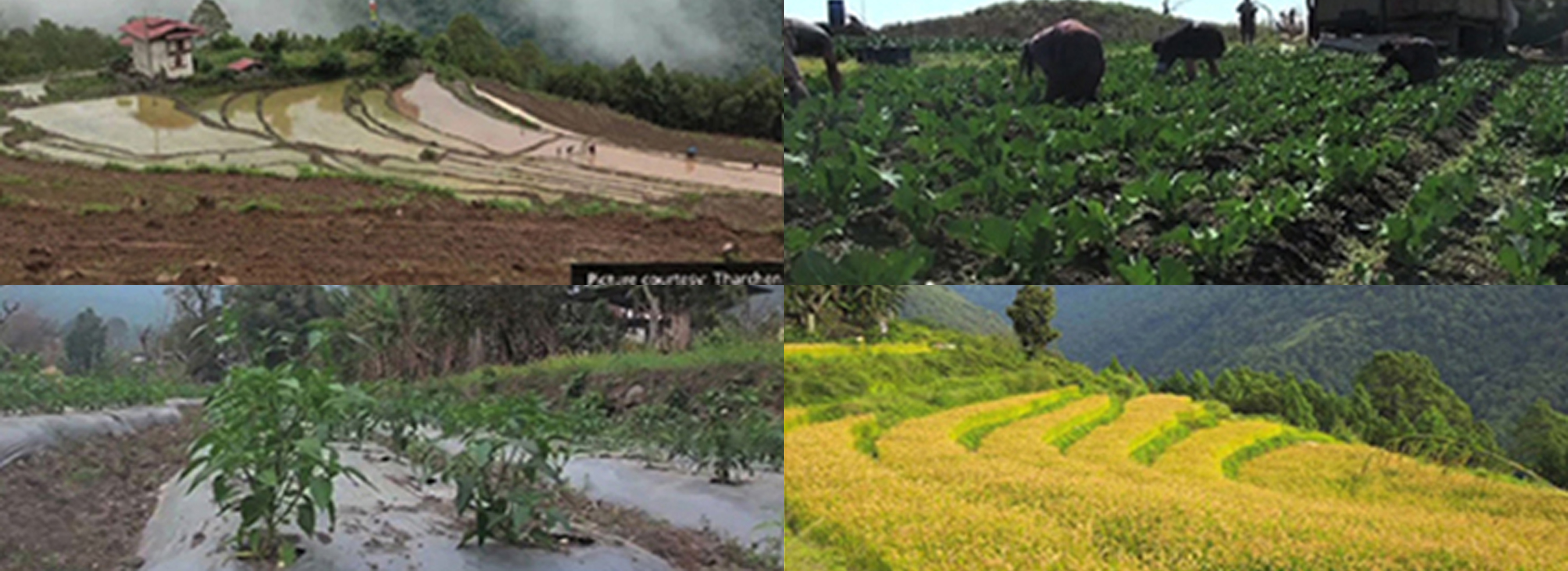A year into the pandemic: becoming self-sufficient in food and agricultural produce

The COVID-19 pandemic has wreaked havoc on the economy at large, but it also opened doors to plenty of opportunities. One important lesson was becoming self-sufficient in food and agricultural produce. Nearly 30 new commercial farms came up last year alone. Individuals also ventured into growing their food. At this time last year, after the international borders closed, Tharchen, a former member of parliament for the National Council from Trongsa found himself extending his farm. He worked on some 24 acres of land that remained fallow for over two decades. And today he reaps the benefit. “We started this farm to be self-sufficient in terms of vegetables and crops during emergencies such as COVID-19. Many cultivable lands across the country are left fallow, so if leaders and youth work together to farm in those lands, it will enhance food supplies within the country and also create employment for the youth,’’ said Tharchen, from Lingdi Farm in Trongsa. Likewise, realising the need of the hour, San Man Subba of Nuggo in Tsirang also became busy. “After the closure of international borders, I grew more vegetables and made a lot of profits. The pandemic also taught us a lot of lessons like storing crops for a longer duration without damage. I feel the government should invest in our local growers instead of importing,” said San Man Subba of Nuggo Farmer’s Product in Tsirang. Many fallow lands were put to use. And because local vegetables were sold like hotcakes, it boosted the courage of the farmers to do more. “The pandemic caused us many problems, but it also benefited us a lot. During normal times, vegetables come in plenty and cheaper, but after the restriction on the import of vegetables and fruits, we could sell our own produces without any problem. This boosted our morale to work harder. We have also learned that if the restriction continues, even after the pandemic, it won’t be hard to achieve self-sufficiency in terms of vegetable,” said Tshering Tashi, the Chairman of the Thuenpa Puenzhi Sanam Detshen in Drukjeygang under Dagana. And the Department of Agriculture said the country has the potential to become food self-sufficient. “Right now, we are only around 88 per cent self-sufficient. We have pledged to the government that Bhutan will be self-sufficient in the next one and half years. Therefore, we are initiating new interventions and facilitating supports to aspiring farmers. We are pushing, promoting, and encouraging semi-commercial and commercial farms through a cost-sharing basis while purchasing farm facilities,” said Kinlay Tshering, the Director of the Department of Agriculture under the Ministry of Agriculture and Forests. The agriculture ministry also provides farmers with free seeds and other support. Today, the ministry supports almost 300 commercial farms and agricultural enterprises in the country.
EMAIL SUBSCRIPTION
Join our email list for the latest updates from FCBL.